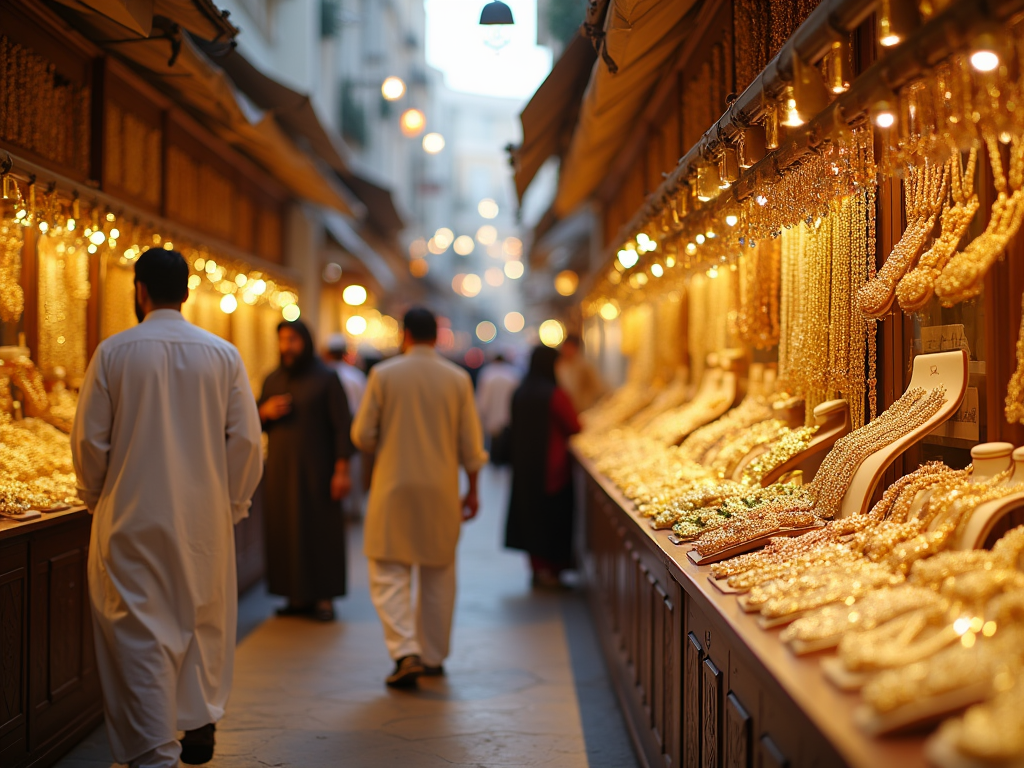
Jewelry Trading in Dubai: Business Insights
Jewelry trading in Dubai is a booming business segment, characterized by opulence, diversity, and an expanding market driven by both local and international demand. Dubai, often known as the “City of Gold,” has established itself as a global trading hub for jewelry, attracting investors, consumers, and traders alike. This article explores the multifaceted jewelry market in Dubai, including its trends, regulations, and investment opportunities, offering insightful perspectives for entrepreneurs and established businesses in the industry.
Understanding the Jewelry Market in Dubai

The jewelry market in Dubai is multifarious, consisting of a range of products from traditional gold ornaments to modern, contemporary designs. The market operates under a well-regulated environment, which boosts investor confidence and facilitates fair trading practices. Major segments include:
- Gold Jewelry: Traditional and contemporary designs that cater to various customer preferences.
- Diamond Trading: A prominent segment that includes loose diamonds and bespoke jewelry.
- Platinum and Silver Jewelry: Increasingly sought after, catering to consumers looking for alternative metals.
- Fashion Jewelry: Affordable options that appeal to a younger demographic.
These diverse offerings create opportunities for traders to innovate and cater to specific market segments, thereby increasing their reach and profitability.
Key Regulations in Jewelry Trading

For those looking to engage in jewelry trading in Dubai, understanding the regulatory landscape is crucial. Businesses must comply with regulations laid out by the Dubai Multi Commodities Centre (DMCC) and the Dubai Economic Department (DED). Here are some vital regulations to consider:
- Licensing: A valid trading license is required to operate a jewelry business in Dubai. This license ensures that businesses comply with local laws and regulations.
- Quality Control: Jewelry items are subject to strict quality controls, which include certifications for purity and authenticity, particularly for gold and diamonds.
- Consumer Protection Laws: These laws protect consumers against fraud and ensure fair trade practices, making it essential for traders to maintain ethical business practices.
Understanding these regulations ensures that traders can operate smoothly and build a reputable brand in the competitive jewelry market.
Market Trends Shaping Jewelry Trading
The jewelry market in Dubai is continuously evolving, influenced by trends in design, consumer preferences, and technological advancements. Significant trends currently shaping the market include:
- Sustainability: There is an increasing demand for ethically sourced and sustainable materials, pushing traders to adopt eco-friendly practices.
- Customization: Consumers are gravitating towards personalized jewelry, prompting retailers to offer bespoke services.
- Digital Transformation: The rise of e-commerce and online platforms is redefining how jewelry is traded, with social media serving as an essential marketing tool.
- Investment Pieces: There is a growing market for high-value jewelry as a form of investment, particularly among affluent consumers.
These trends present substantial opportunities for traders who can adapt and innovate in response to shifting consumer demands.
Investing in Dubai’s jewelry market can be lucrative, provided that investors are well-informed about market dynamics and consumer insights. Several investment opportunities include:
- Retail Ventures: Opening a retail store in strategic locations can attract both local and tourist customers.
- Online Jewelry Sales: Setting up an e-commerce platform to tap into a global customer base.
- Custom Jewelry Design: Offering bespoke jewelry services to cater to individual tastes and preferences.
- Wholesale Trading: Supplying jewelry to other retailers and boutique shops can yield substantial profits.
Identifying the right niche and tailoring business strategies can lead to significant returns in this vibrant market.
Conclusion
Jewelry trading in Dubai offers a wealth of opportunities for both budding entrepreneurs and established businesses. With a diverse market landscape, supportive regulations, and emerging trends, those who enter this industry can expect significant growth and profits. Understanding local consumer behavior, adhering to regulatory standards, and keeping pace with market trends are essential for success in this competitive arena. By leveraging the unique attributes of Dubai’s jewelry market, traders can carve a niche that resonates with both local and international clientele.
Frequently Asked Questions
1. What types of jewelry are most popular in Dubai?
Gold jewelry, especially traditional designs, remains the most popular. However, diamond and platinum jewelry are gaining momentum, as well as fashion jewelry targeting younger consumers.
2. How can I start a jewelry trading business in Dubai?
You need to obtain a trading license from the Dubai Multi Commodities Centre (DMCC) or Dubai Economic Department (DED) and adhere to local regulations regarding quality control and consumer protection.
3. Is it necessary to have a physical store for jewelry trading?
While a physical store can attract local customers, establishing an online presence through e-commerce platforms can also be effective, allowing access to a global market.
4. What are the current market trends in Dubai’s jewelry sector?
Current trends include sustainability in sourcing materials, increasing demand for customization, digital transformation of sales channels, and a focus on investment pieces.
5. Are there any risks associated with jewelry trading in Dubai?
Like any business, risks include fluctuations in gold prices, competition, and compliance with regulations. Thorough market research and sound business practices can mitigate these risks.


